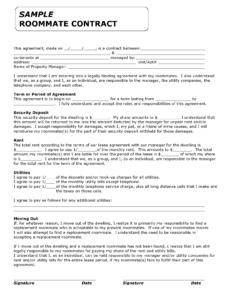This post contains affiliate links. For more information, see my disclosures here.
Before you move!
You got accepted. You had your open house. Now you’re thinking about the big move! Before moving to college, find out what is and is not allowed in your dorm room. Colleges should have a list on their websites with this information. In addition, you should get the dimensions and layout of the room you’ll live in for the next nine months. This will allow you to make plans for furniture or for any decorations.
The school should give you information about your roommate(s) ahead of time, too. Try to connect with her if possible. This will give you a chance to find out what kind of person she is. You can see if you have anything in common and how you might get along or where there might be challenges.
In addition, you can coordinate items for the dorm room if you want to. Some people want to have a cohesive design for the entire room and be twin divas. Others may just want to avoid clashing with each other. You may even decide that you don’t care about such things and each side of the room will have a completely different look from the other. One side rockabilly and one side hipster. Are those still things?
Regardless of decor, you can discuss things like who will bring the television, if one of both of you like/can tolerate strong scents (i.e. essential oils – never leave home without them), who will bring cleaning supplies, etc. It doesn’t really make sense for there to be two brooms. If you can’t connect with your roommate for some reason, just bring what makes sense, and when you finally meet, coordinate everything else. Shopping time!
While moving in
The real fun of moving to college begins when you get to move in all that stuff you thought you needed. Less really is more. Bring less than you think you need. You can always bring more later, or even order more. It’s better to do that than to bring everything you own and have nowhere to store it. Speaking of storage, dorms have little to none. It’s a crime. Clear totes are a life saver. I’m partial to Rubbermaid. I will always recommend anything from them. This tote is sturdy and closes securely. Its low profile makes it easy to fit under a bed or on top of a wardrobe or closet shelf. Best of all, it’s clear, so you can see what you need to get without having to dig through everything. Of course, they have other sizes, etc.; I just think this one is ideal for a college dorm. Other ways to save room include bringing clothes for the current season, not stocking up on extraneous supplies or food, and using items for double duty purposes. For instance, instead of bringing a full-sized ironing board, use your desk top or bed.
Make it Like Home
Once you squeeze yourself, your roommate, and all that stuff into your room; get everything set up that you can. The sooner it feels complete, the sooner you feel like it’s a “home”. Get your posters or pictures up on the walls. If you have décor, set it up! Arrange lamps and furniture where you want them. Put up decorations, pictures of friends/family, nick knacks, etc. You want your space to feel as much like a sanctuary as a dorm room can. Take the time to place items in and on your desk where you want them, make your bed, anything like that. Part of decorating (and saving space) should involve hanging things on the walls. You won’t want to cause damage to wooden walls and you won’t be able to if the walls are stone. Your best bet is to use adhesive hooks. In my experience, the best ones are those by 3M, but think about what you’ll use them for. Maybe start with a pack of the original hooks. Once you have a better feel for what else you might need, you could get the heavy duty hooks, bath hooks, etc.

If you have moved in before your roommate, it’s a good idea to get out of her way while she moves in. Dorms are not very big, so you want to give her space for her and her family to maneuver. You could take this time to explore the rest of the building, hang out in the lounge, explore campus, or meet some new friends. You could help her, but the chaos of moving might make getting out of their way easier for everyone. Besides, you’ll probably be tired from your own move in.
After moving to College
Now your family is gone and you’re left with this roommate. Learning to live with someone you just met can be a challenge, but there are ways to make it a little easier. Roommate agreements can save a TON of headaches. If you’ve never heard of one (PLEASE tell me you’ve see The Big Bang Theory), It’s a written agreement between the two of you to adhere to certain behaviors. These compromises will go a long way toward a peaceful living situation. Within a few days of moving in, sit down with your roommate to go over what’s important to each of you regarding the living situation. Remember to compromise! You may not get exactly what you want, but you each may get something close.
Some schools require their own roommate agreement. If doesn’t cover everything you want, or if your school doesn’t have one, look for one online, adjust it for your own needs, and print it for the both of you to sign and hang somewhere (or keep somewhere safe and easily accessible). You can find a good example from Elizabethtown College, you can create one from eForms, and here’s another example from the blog Her Campus. You could also do a Google search for examples and then tweak them.
What to Cover in a Roommate Agreement
You should talk about what areas and items are shared and what are private. Is it ok for her to look in your desk and closet, or are they off limits? Can she borrow clothes whenever she wants, or does she need to sign them out after getting permission (yes, these are extreme examples)? What food is public and what is food will you not share? Will the refrigerator be split by shelf or vertically in half? What about the freezer? Talking about these ahead of time will head off any misunderstandings and hurt feelings.

The room temperature is another area to discuss. Some people have VERY different temperature needs. If you prefer the room warm and your roommate prefers it cold, you will have to find a temperature that you can both live with. I become a beast from the netherworld if the room is over 78°. Keep in mind that computers ideally should be kept in rooms between 68°F and 79°F.
Shut it!
Lights out or study time is another possibly contentious topic. You could choose a time that the lights actually have to be off, or you can say that certain lights have to be off (like the overhead light) at a certain time. This should also include study time. What hours do you both consider study vs social time? During study time, what activities should you each avoid? If it’s not a certain time, what activities should one roommate avoid if the other is studying or sleeping? For example, should music only be listened to through ear phones/buds if the other roommate is sleeping? What if one of you needs music to study and the other needs quiet? You need to figure out how to negotiate these situations and come to an agreement.
Regarding social issues, will you allow drinking in the room? Will you allow overnight guests? What if the overnight guests are just friends vs romantic partners? If you’re not allowing overnight guests, how late can they stay? What are the dorm rules in these areas? Who will do what chores in the room and when? Will the same person sweep every week, or will you trade off? How will you handle buying shared food? There are quite a few subjects to cover when living with someone else. There are probably things you won’t think of ahead of time that may come up later. In those cases, be flexible enough to make amendments to the agreement.
Violators Will be Towed!
Lastly, what will happen if one of the agreed upon stipulations is violated? Will there be consequences? If so, what kind? I personally feel that there is no point to the agreement if there are no consequences. First, you must each agree to speak to each other if the other has an issue to discuss. Avoiding the problem will only make things worse. Trust me on this. Talking now is better than screaming later.
There are many types of possible consequences. A violation could mean the violator must take over certain chores for a given duration. Depending on the strength of the violation, perhaps the offender must be banned from the room for a certain amount of time. The various stipulations should be ranked for the purpose of consequences. Another Idea is that the violator must pay into the jar of the other roommate based on the strength of the violation. So if playing music loudly during study time is a $5 violation, the one who plays that music puts $5 into the other roommates jar. These are just examples. You come up with your own if you want. Of course, you can always enlist the help of your RA for any conflicts if you feel it necessary.

